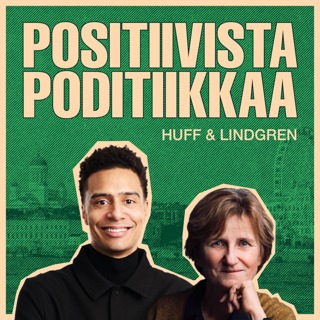
580: Truth Demands: Murder, Oil Wars, and Climate Justice
This week, Emily Hart speaks to Abby Reyes – human rights lawyer, environmental activist and author, as well as Director of Community Resilience Projects at the University of California. Abby was inextricably drawn into Colombian history in 1999 by the murder of her partner, Terence Freitas. Terence was kidnapped and killed by the FARC guerrilla, alongside two other indigenous rights activists - killings which sent shockwaves through political and activist circles both here and in the United States. The three had been working with the U’wa indigenous community in the northeast of the country, where Occidental Petroleum - a US-based corporation - was threatening to start operations in ancestral U’wa territory. In the years following, as well as grappling with grief, Abby joined in activism with the U’wa from the United States, facing Occidental on Capitol Hill: she later even testified as an accredited victim at the Colombian peace tribunal, the JEP. The dense interweaving of the personal, political, and historical, make for a moving and unique set of experiences which Abby narrates in her extraordinary new book: ‘Truth Demands: A Memoir of Murder, Oil Wars, and the Rise of Climate Justice.’ The Colombia Briefing will be subscriber only this week – so those of you who have already signed up will be getting it through WhatsApp and email as usual - but if you’re missing your hit of news and want to be sure you never skip an update, you can head to the Colombia Calling Patreon or to Emily's Substack – harte.substack.com. -- Check out Colombia Calling, the longest-running English-language podcast about Colombia. Richard McColl's latest book The Mompos Project: A Tale of Love, Hotels and Madness in Colombia Richard McColl's book on Colombian history and politics Colombia at a Crossroads: a Historical and Social Biography La Casa Amarilla, Mompos Hotel San Rafael, Mompos Colombia Calling podcast Latin News podcast
19 Elo 1h 24min

579: Looking Ahead to Colombia's Presidential Elections
In this episode of the Colombia Calling podcast, host Richard McColl discusses the upcoming elections in Colombia with Sergio Guzmán and Isy Hawes from Colombia Risk Analysis. They delve into the political landscape, the challenges of analyzing the elections, the key candidates, and the impact of security concerns. The conversation also touches on the role of the United States in Colombian politics, the importance of coalition building, and the potential legacy of President Petro. The discussion highlights the fragmentation and polarization within Colombian society as the country approaches a pivotal election year. This episode was recorded before the events of 11 August when Senator Miguel Uribe died from his injuries sustained from an assassination attempt on 7 June in Bogota. The Colombia Briefing is reported by Emily Hart. Read the report in English and Spanish here: 🇪🇸ESP: https://www.colombiariskanalysis.com/post/fragmentacion-y-polarizacion-a-un-a%C3%B1o-de-la-proxima-presidencia 🇬🇧ENG: https://www.colombiariskanalysis.com/en/post/fragmentation-and-polarization-one-year-ahead-of-the-next-presidency
12 Elo 1h 12min

578: Translating Mafalda
This week, Emily Hart speaks to multi-award-winning translator Frank Wynne about Latin America’s most beloved cartoon - Mafalda - and how he brought her to life in English. Dubbed ‘a hero of our time’ by Italian philosopher Umberto Eco and ‘Charlie Brown with Socialism’ by the New York Times, Mafalda is a precocious six-year-old girl living in 1960s Argentina - full of questions and observations about the world and the adults who surround her. She loves democracy; she hates soup and yoyos. Though often lighthearted and sprinkled with slapstick and wordplay, her curiosity and questions are more than they initially appear: illustrator Joaquín Lavado, known as ‘Quino’ uses her seemingly innocent interrogations to skewer the hypocrisies and nonsense of contemporary politics. In the voice of a cartoon child, these questions and criticisms ran under the radar, but in 1970s Argentina, even her voice felt too critical: Quino left the country, which then suffered a coup and a subsequent military junta. He later said he would have been arrested had he continued to publish Mafalda; many of his friends and collaborators were. Though the cartoon strip only ran for ten years, and Quino himself died in 2020, Mafalda has a huge and lasting legacy across the world - from Argentina where it began, to Chile where it was banned, and here in Colombia too: you can see statues and graffiti of her in Buenos Aires, and buy her merchandise down the banks of the River Seine. Frank will be telling us about this Latin American icon and the process of translating her into English – the first translation ever published, which came out in June of this year. He'll be tackling the tensions inherent in translating comedy – especially in cartoon strip form – as well talking about the stealthy satire and societal critique which Mafalda was able to enact: a crucial humanist and critical voice, disguised as a child. We’ll also talk about how Mafalda’s relevance reaches way beyond her context and time, about modern censorship and satire amid deepening repression, and why now is the perfect time for Mafalda to reach English-speaking audiences - particularly (perhaps) in the United States. Frank also tells us who Mafalda would have been if she was born today, and who she’d have been if she grew up… Plus the Colombia Briefing - also reported by Emily Hart.
5 Elo 1h 15min

577: Small Earthquakes and what we never learnt in school about South America
Blending travel writing, history and reportage, our guest on this week's Colombia Calling podcast is award-winning journalist and author Shafik Meghji who tells a tale of footballers and pirates, nitrate kings and wool barons, polar explorers and cowboys, missionaries and radical MPs. From a ghost town in one of the world's driest deserts to a far-flung ranch in the sub-polar tundra; rusting whaling stations in the South Atlantic to an isolated railway built by convicts. '[An] appealing fusion of travelogue and history, excavating the roots and remnants of British influence in Argentina, Chile and Uruguay.' - The Observer ‘This is travel writing as much as history. Meghji has the true travel writer’s eye for the comic, pathetic and tragic, and for the places where they collide. . . This is writing full of rust, wind and sadness. It captures splendidly the air of South America and the long, withdrawing roar of an empire whose influence once reached far beyond its political borders.’ — The Times So tune in to hear our conversation with Shafik. https://www.shafikmeghji.com/ And, the Colombia Briefing is reported by Emily Hart https://substack.com/@ehart
29 Heinä 58min

576: The Myth Of The Narco
In order to understand the issue of the cocaine trade in Colombia, we need to look at three factors: 1. Drugs Policy as a Geopolitical tool. 2. Markets: A Political Economic issue. 3. Narratives: the Myth of the Narco. On the Colombia Calling podcast this week we speak to Estefanía Ciro Rodríguez, expert on drug politics, the cocaine economy and the Colombian armed conflict. We discuss la Escombrera in Medellin, Pablo Escobar, Álvaro Uribe Vélez, Arms trafficking by the Sinaloa cartel and the Cártel de Jalisco Nueva Generación to Colombia, genetically modified coca, cocaine seizures, the price of cocaine, and why Colombia as a nation needs to look in the mirror. Check out: https://alaorilladelrio.com The Colombia Briefing is reported by Emily Hart. Support her on Substack: https://substack.com/@ehart and Support us on: https://www.patreon.com/c/colombiacalling
22 Heinä 1h 10min

575: The Rise of the Tren de Aragua: A Deep Dive
This conversation on the Colombia Calling podcast delves into the complexities of the Tren de Aragua, a Venezuelan criminal organization that has evolved significantly over the years. Chris Dalby, an expert on organized crime, discusses the origins of the gang, its relationship with the Venezuelan government, and how it has adapted to the migration crisis. The conversation also addresses misconceptions about Tren de Aragua in the U.S., particularly regarding its alleged connections to terrorism and its impact on Venezuelan migrants. Dalby emphasizes the need for a nuanced understanding of the gang's operations and the socio-political context in which it operates. Tune in to this and the Colombia Briefing with Emily Hart.
15 Heinä 1h 7min

574: Andrei Gómez Suárez discusses peace dialogues and writing as he reflects on the Colombian conflict
In this episode of the Colombia Calling podcast, host Richard McColl speaks with Andres Gomez Suarez about his new book 'We Are Not Made of Sugar', which reflects on his childhood experiences during the violence in Colombia, particularly the genocide of the Patriotic Union. They discuss the importance of memory work, reconciliation, and the ongoing peace processes in Colombia, including negotiations with the Comuneros del Sur. The conversation delves into the personal and collective impacts of violence, the role of peace building, and the challenges faced in creating a sustainable peace in the region. Buy his book: https://a.co/d/2I0NexU The Colombia Briefing is reported by Emily Hart.
8 Heinä 1h 3min

573: Richard McColl reads from his book: "The Mompos Project: A Story of Love, Hotels and Madness in Colombia."
When British foreign correspondent Richard McColl purchased, on a whim, a ruined colonial building in the rural Colombian town of Mompós, he imagined a lifestyle of relaxation, with idle afternoons reading the works of Gabriel García Márquez, writing glib observations and enjoying the hypnotic momentum of a Caribbean tropical narrative, swaying in a hammock and the promise of an ice cold beer never far away. He was mistaken. His first restoration yields a hostel, which later becomes a hotel and then spirals into further projects including the restoration of three more colonial houses, experiencing challenges that make him reconsider his upbringing, education and outlook on how he fits into his adopted homeland. With two hotels in Mompós, he experiences the joy of new friendships and a despair over the predictability of guests. With a journalist's eye for a story, McColl navigates the history of Mompós and how its society is a microcosm of today's Colombia, with its feudal system still very much in place, inherent prejudices, stigma surrounding the politics, the people and the past, all coming to the fore. Buy the book: https://a.co/d/ezGbsP3 The Colombia Briefing is reported by Emily Hart.
1 Heinä 51min


















